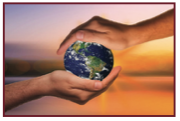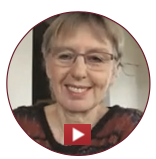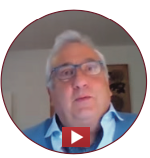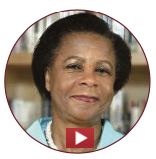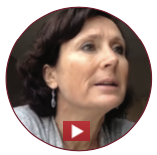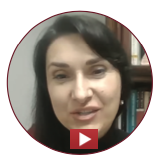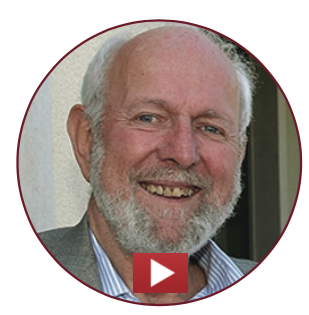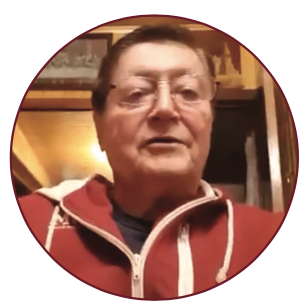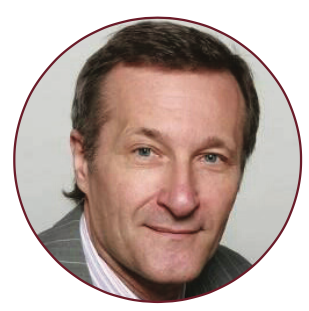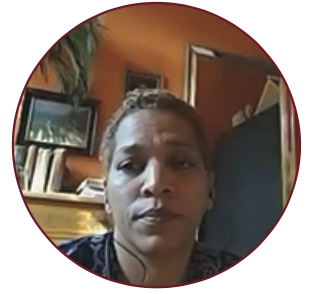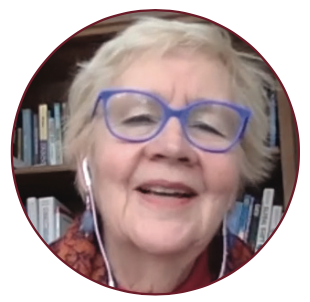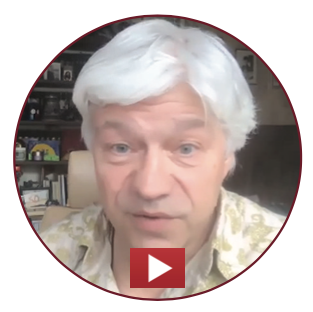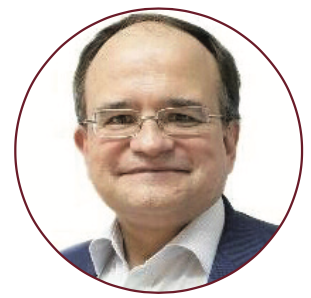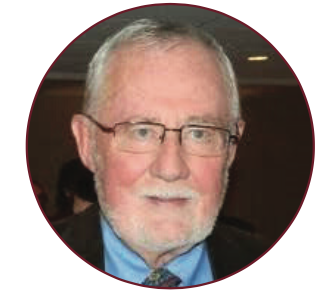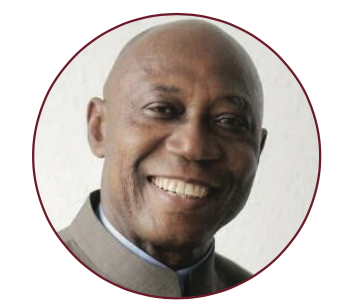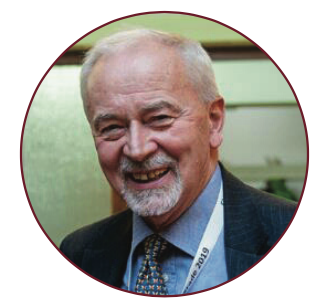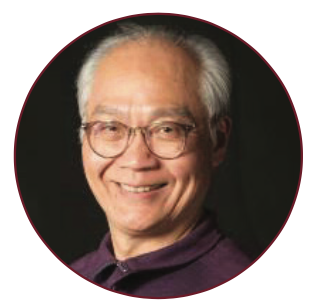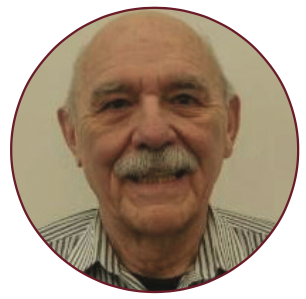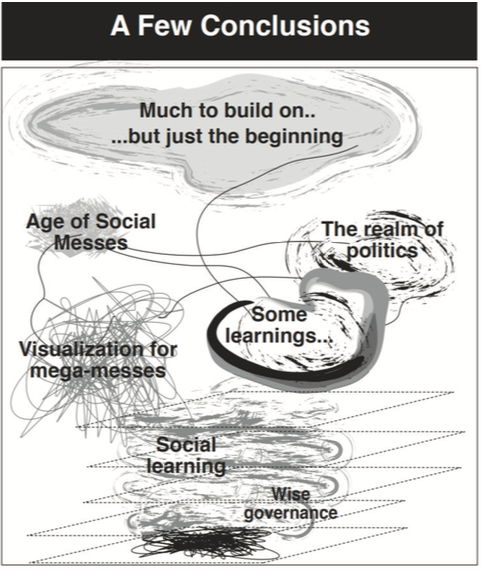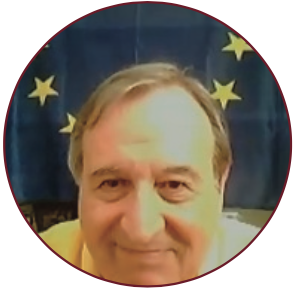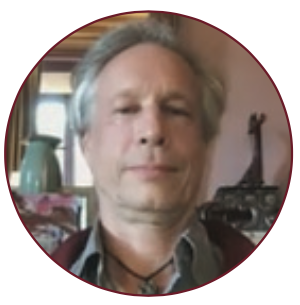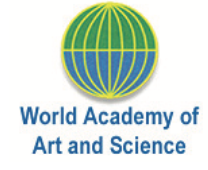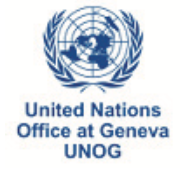| Click here for PDF version | ||||

A Planetary MomentumAsymmetric Shocks, Global Preparedness for Change and the Rise of a New Paradigm |
||||
|
Has COVID-19 pandemic changed the world? The world has suffered many infectious pandemics, e.g. plague stretching through many centuries and spreading around the world. COVID-19 compressed the horror of centuries into a few months extending through global space. The world today will never again be as it was just a few months ago. The social structure of our world has already changed and a major economic crisis is looming. In addition, COVID-19 has had a significant psychological impact. COVID-19 requires coordinated global action now. Many of these actions belong to our existing toolkit, but COVID-19 has also accelerated the demand for actions based on a new social, economic and political paradigm. Over the past decade, the World Academy of Art and Science (WAAS) has emphasized the need for a new paradigm: human-centered and humanity-centered. Some responses to COVID-19 based on existing policies and methods threaten to undermine democracy and human rights, underlining the absence of human-centered attitudes. Therefore, a new paradigm is essential. Its realization will require the commitment and active involvement of all of us. Leadership is needed at all levels to transform the growing disunity into global solidarity based on complementary top-down and bottom-up initiatives. Academia should analyze the risks and formulate paths to innovation and cooperation combined with personal responsibility. Attention should be paid to decision theory, rational choice and values in framing solutions taking into account the complex relations, interactions and reciprocal immediate and long-term influences involved. All sectors should seize the opportunity to alter established practices which have failed and have no future. Lessons concerning the weaknesses of social systems must be studied in depth and analyzed to understand why and how conventional thinking has led to global crises, the vulnerabilities generated by globalization and networking, and the ideas needed to foster effective social innovation. It calls for changes from technology-driven society to human |
 and humanity-oriented technology utilizing opportunities generated by the digital revolution, as illustrated by web-based distance learning, which is already permeating our education system and work places. and humanity-oriented technology utilizing opportunities generated by the digital revolution, as illustrated by web-based distance learning, which is already permeating our education system and work places.
As the Inter Academy Partnership has stressed in a recent statement, we need “collaboration based on the whole-of-governments and the whole-of-society.” WAAS is guided by the motto of ‘Leadership in thought that leads to action’ and ‘Striving of the best minds for a solution of present problems… and demands for the future’. The duty of academies, universities, research institutes and of each individual scientist is to contribute towards progress in each and all scientific disciplines. Since our world, our problems and tasks are complex and interdependent, it is necessary to strengthen transdisciplinary and holistic approaches. COVID-19 highlights changes essential for human survival and the need for a moral paradigm change. We hope to soon see our schools, universities, workplaces, concert halls, and public buildings as full as they were before. But we also hope humanity has learned that the destruction of social cooperation is as dangerous as the loss of biodiversity, climate change, pollution and overconsumption which threaten to destroy the resilience of human society. To survive, we need empathy, solidarity, understanding and creativity. We are faced with an enormous and difficult task. We can accomplish it now. |
|||
| INSIDE THIS ISSUE | ||||
|
A PLANETARY MOMENTUM |
SOCIAL TRANSFORMATION E-CONFERENCE REPORT 1. Economic, Ecological & Social Transformations Ecology Economy Social Transformations 2. Insights from the Social Transformations of the Past Ecological Transformations Political Transformations Social Transformations |
|||
  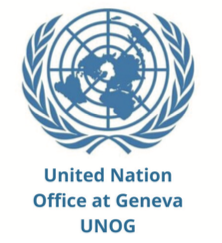
GLOBAL LEADERSHIP IN THE 21ST CENTURYUnique Moment for Planetary Momentum
|
||||
An Invitation to CollaborateWANTED: Practical Solutions & Catalytic Strategies
The World Academy of Art & Science (WAAS) in partnership with the United Nations Office at Geneva (UNOG) is pleased to issue this call for papers and proposals to representatives of international organizations, national governments, NGOs, media, business, and other civil society organizations and expert individuals to contribute to catalytic practical solutions to address pressing global challenges related to Health, Education and Wellbeing; Peace & Security; Governance & Human Rights; Finance, Economy & Employment; Energy, Ecology & Climate; and Science & Technology. Conference presentations and recommendations will be eligible for publication by WAAS, presentation at the main conference at the United Nations Office at Geneva on October 27-28, 2020 and inclusion in the final report to the UN. How you can contribute:
DEADLINE FOR SUBMISSION OF PROPOSALS: APRIL 30, 2020 For more information on the GL21 Global Leadership Project |
||||
WAAS–GlobalMindED 2020 for Earth Day
The GlobalMindED 2020 Webinar Series will be featured on the Zoom platform Monday through Friday on April 20-24 at 8AM PST, 11AM EST, 5PM CET. GlobalMindED is an innovation network of inclusive leaders committed to closing the equity gap by creating a capable, diverse talent pipeline across industries and sectors nationally and globally through education, entrepreneurship, employment and economic mobility. The mission of F4CR is to catalyze action to build full capacity by 2030 to restore the climate by 2050. The Alliance Center is a network of non-profit organizations, for-profit businesses, government gencies, academic institutions and community members to collaboratively create sustainability-focused solutions. The pandemic has revealed our individual and collective vulnerabilities and interdependencies and requires coordinated global action now. This program will examine ways to respond to the new socio-economic conditions and the planetary momentum for change induced by the COVID-19 pandemic, focusing on preparedness for transformative change toward a new social, economic and political paradigm. Leadership is needed at all levels to transform the growing disunity into global solidarity based on complementary topdown and bottom-up initiatives. Eminent leaders of international organizations and initiatives partnering with WAAS will discuss the psycho-social, cultural, economic and political impact of the pandemic that made the world stop but gave the planet a moment to breathe and the new leadership needed to take us to the new paradigm of human development aligned with natural laws and planetary boundaries. The PROGRAM of the webinar series is as follows. Please click on the day and date to register: Monday, April 20: Mobilizing Climate Restoration Movement. Movement-builders from multiple generations weigh in on the importance of climate restoration and their strategies for building momentum.
Wednesday, April 22: Governments, Diplomacy, and Grassroot Activism. Diplomats, policymakers, faith leaders, and activists will discuss the role of diplomacy and grassroots activism in the climate restoration movement. Thursday, April 23: Financing Global Solutions and Regenerative Culture. Change makers from diverse disciplines and organizations discuss designing globally minded system for ecological economies, regenerative cultures and new social architecture. Friday, April 24: Youth Voices and Next Steps for Climate Restoration. Young, inclusive leaders ages 16-18 will discuss what climate restoration means to them and how they are activating their networks, ideas and innovations to bring this change to the world. The Fellows and their respective organizations and networks are invited to join the positive global momentum building up in the midst of the crisis and to mark the Earth Day with WAAS and our valued partners. We invite you to join the webinars and participate in the exploration of globally minded system for ecological economies, regenerative cultures and new social architecture. |
||||
Announcing the Inauguration of
|
||||
|
The inaugural meeting will commemorate the 75th anniversary of the UN, the 60th anniversary of WAAS and the 50th anniversary of The Club of Rome. The e-conference will inaugurate Globalistics 2020, the 6th International Scientific Congress, originally scheduled to take place in Moscow at this time. Subsequent online proceedings will be held during the third and fourth weeks of May. The online sessions are expected to initiate a rich discussion among the participants on global leadership and social transformation, which are the focus of the UNOG-WAAS’ project ‘Global Leadership for the 21st Century.’ Session 1: Inauguration and perspectives on the world today by MSU, UNESCO, WAAS & CoR. |
Session 2: Present challenges of global transformations, new tasks related to Global Agenda, Sustainable Development Goals (SDG) and Global Social Transformations (GST) moderated by UNESCO and MSU. Session 3: Pathways for political, social, economic and ecological transformation based on an inclusive conception of global security—the role of global leadership, international organizations and “think-tanks” to assist the decision-making process moderated by WAAS and MSU. Session 4: “Emerging from emergency”—a new role and a new meaning in the light of the present situation with COVID-19 which is radically changing the world. Details of the agenda will follow shortly. Register here to participate in the online meeting. |
|||
IEEE International Conference on Systems, Man & Cybernetics (SMC)
|
||||
 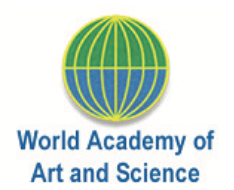 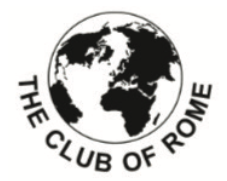
World Academy-Club of Rome Online Roundtable, 9th March 2020 |
||||
Conscious Social Evolution |
||||
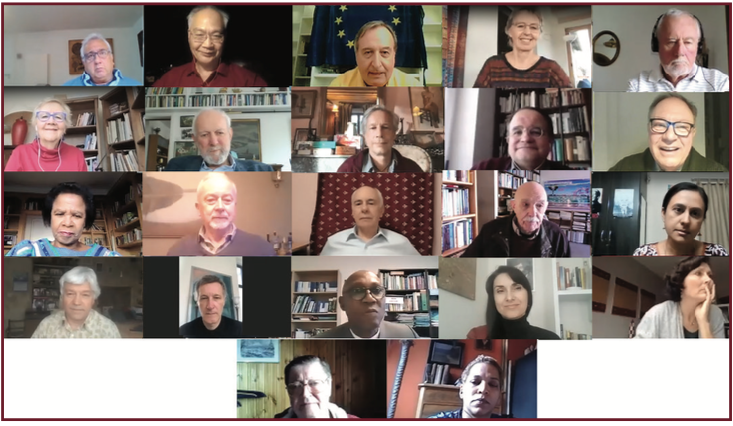
The World Academy of Art and Science and the Club of Rome (CoR) collaborated to organize an online roundtable on Catalyzing Rapid Social Transformation. The online meeting was convened as the three-day event scheduled to be held at Dubrovnik in the second week of March 2020 had to be postponed due to the COVID-19 pandemic. The one-day online meeting on March 9th brought together 22 WAAS Fellows and CoR Members, to examine the underlying process of social evolution that has been driving |
and guiding global social evolution over the past few centuries, and to explore catalytic strategies that could be leveraged to promote conscious social transformation.
The meeting was an important step in WAAS and CoR’s joint efforts to promote global progress on a wide range of critical issues being examined by WAAS in its Global Leadership Project, and by CoR in its work on economic and financial transformation, planetary emergency, and the Emerging New Civilization Initiative. The foremost requirement for successfully implementing change is to have a clear understanding of the process of change. Understanding makes it possible to consciously initiate what has been taking place without clear leadership and direction so far. It can also accelerate the pace of social progress to keep up with the speed and magnitude of the multitude of complex changes impacting humanity in future. A study of past social advances can enable us to better understand the process of social evolution, the forces that drive it, the obstacles it needs to overcome, the stages it passes through, the catalytic strategies that made it possible, and its contribution to human wellbeing. |
|||
Great Transformations of the Past
|
||||
|
When the Declaration of Independence was drawn up in America in 1776 promising life, liberty and the pursuit of happiness, it offered these to all “men”, but did not apply to women, minorities, African Americans, or slaves. The human endeavour to establish social equality has been a very long, slow and extremely difficult one. Women in 19th Century England did not have the right to their own property after marriage. US President Franklin Roosevelt’s New Deal to create jobs and provide economic security during the Great Depression of the 1930s was challenged as unconstitutional on the grounds that the government did not have the right or responsibility to interfere in the economic welfare of the people. The dramatic changes we have witnessed since then demonstrate that changes of the magnitude required today have happened in the past and are possible, but humanity can no longer afford to wait centuries or even decades for them to happen. We need to learn how to consciously transform the long, slow process of social evolution into rapid, conscious social transformation. Reflecting on great accomplishments of the past can generate insights into how to accelerate the process and make it far more effective. Today humanity confronts complex challenges encompassing global security and governance, finance and economy, science and technology, the wellbeing of people and the planet. Climate change, the coronavirus, the retreat from democracy and renewed arms race are illustrative. All these challenges are global in nature. They cannot be effectively addressed by piecemeal sectoral policies and institutions |
 at the national or local level. Comprehensive, integrated strategies and unprecedented levels of global multilateral cooperation and coordination are essential which reflect the complexity of the world system and its interdependencies. at the national or local level. Comprehensive, integrated strategies and unprecedented levels of global multilateral cooperation and coordination are essential which reflect the complexity of the world system and its interdependencies.
All these need to be founded on different types of thinking. They cannot be managed by the linear, analytic, mechanistic way of thinking that divides reality into so many independent airtight compartments. A shift to systematic, synthetic and integral thinking is essential. This implies a radical change in the functioning of our educational and scientific institutions, on how and what we teach and conduct research. Developing a deeper understanding of the process of social transformation is one of the primary goals of this meeting. That knowledge can help us to formulate effective catalytic strategies to generate the necessary political will and public acceptance, release social energy, and foster transformative social movements. |
|||
Converging Pathways and an Action Plan for the Future |
||||
Zooming into the Agenda for Societal Change: One Dialogue, One Day, and More to ComeFellows of WAAS and members of CoR have parallel work streams, digging into the common good of an emerging civilization and its renewed sense of leadership. Confined within an immaterial world, we searched and found promising convergences during the one-day reflection around actionable thoughts. Applying our minds and souls around a common theme made us more humble and open to learn from one another. Simply to listen and exchange views…Could that be an act of collective leadership? This reengineered meeting, which was supposed to take place face-to-face over three days in Dubrovnik, gave us the opportunity to zoom into different perspectives with an open mind and a clear intent to get together, no matter what, and imagine a better future. In the midst of the coronavirus planetary crisis, we stepped out of our isolated corners and tried to imagine how a conscious transformative change could happen through the primacy of the human factor over the technological one; adopting behavioural changes that would preserve and revitalize our environment, quality of life and our multicultural societies. The overriding COVID-19 pandemic is quickly destroying lives, assets, habits and certitudes. However, this calamity presents us with the opportunity to change society for the better. Our dialogue has demonstrated that we can usefully indicate an alternative path through the hidden rocks and shallow waters of narrow crossings and passages. The unintended consequences of the coronavirus spread has already had positive effects over the reduction of carbon dioxide emissions in large cities. But a conscious change is necessary. We should think and enact a different model of coexistence, as simple growth and prosperity no longer represent a viable future. We agreed on how things could be done differently, according to inspiring principles, in line with our own cultural heritage, with mutual respect, creativity and a stronger commitment to preserve our ecosystem. WAAS is the perfect instrument for the intergenerational dialogue that is much needed at this time of transformation. Strengthening resilience, youth empowerment, and an ethical higher education are among the objectives to be fostered with an unprecedented solidarity among people. An agenda to confront the existential threats of our time is in the making, with our collective contribution. |
Learning from History and Leveraging Cultural HeritageThe coronavirus pandemic seems set to radically transform how we operate as a global community to continue to discharge our obligations during the lockdowns and shutdowns imposed upon us. As a “born before technology” participant in this online roundtable, I am in awe of what ICT is making possible to keep people connected and actively engaged in iterative processes. Being virtually transported into the rich possibilities of the 21st century convinced me that we should do more of these online engagements to reduce our travel footprint as part of emergence from the climate emergency journey. Garry Jacobs and Petra Kuenkel’s leadership as convenors of this process supported by an excellent technical team guided us to navigate the combination of plenaries that enabled us to tackle the broad themes of ecological, social and economic transformations in their historical and contemporary perspectives, whilst breakout groups opened windows into deep dives to explore key subthemes. The richness of the conversations reflected the diversity of views of around 20 participants. My biggest take away from the Roundtable is the confirmation of the critical importance of learning from history and leveraging natural and cultural heritage to ask more complex questions of ourselves as we seek to understand how best to be effective catalysts of the urgent transformative processes demanded of us. Leveraging both the wisdom of ancients and innovations of modernity is essential to seizing the opportunities that are presented by the tipping points triggered by old and new challenges. Inter-generational conversations are an essential ingredient to sustainable transformations. WAAS NEWSLETTER
WAAS publishes periodic Newsletters reporting on WAAS activities. To get free access to the WAAS newsletter and several articles and papers, please visit the WAAS Publications page. |
|||
Shift to a Wellbeing EconomyThe current panic gives us an opportunity to reflect on how to handle panic. We may face more pandemics because of the various biodiversity and climate tipping points. There are several other challenges as well, such as migration and climate change. As the global bodies and world leaders are trying to cope with these issues, it is our duty to explore how we can turn our conversations into important moments for reflection that we can then translate into impactful action. We should start a decade of action that could set in play the deep transformation we need within the economic system and the finance system. We should bring economists together to formulate clear guidelines of action to shift to a wellbeing economy, and share the knowledge with governments and other groups. There are several youth movements in the areas of ecosystem, biodiversity, women’s rights, and climate that can be taken as models to scale up. Within these movements and voices expressing discontent, there is greater inter-generational dialogue. Youth, families, scientists and several other parts of society are coming together as one voice. This is a powerful bottom-up shift. We also see a persistent call for a wellbeing economy, and proper indicators for growth. There is a clear shift in governance towards inclusivity and diversity. |
Movements that Reorder the WorldThe fall of the Berlin Wall led to a reordering of the world. Changes were effected in Hungary, Czechoslovakia, Poland, Yugoslavia and other countries. The year 1989 shattered the bipolarized security order that characterized the East-West politics for the previous 40 years. Several other major influential movements and events, such as the Woodstock festival, the Civil Rights Movement, Live Aid, Fridays for the Future, and Global Citizen Festival, show the power of representation. Aesthetic and political representation is profoundly interconnected. Cultural movements have the capacity to move political fronts, and once the political fronts are moved, they set a new cultural setting and a new climate. We need an evolutionary shift:
Through their collaboration, WAAS and CoR are engaged in co-creating the New World and designing a new process of social learning, global leadership and a new social architecture. |
|||
The German Energy Transition |
||||
SDGs in the Context of Social Transformation
The UN SDGs can be combined with and seen in the context of social transformation. This is the approach of the United Nations in its collaboration with Lomonosov Moscow State University at the Globalistics 2020 Congress scheduled to take place in May 2020. The Congress is a main platform for interdisciplinary dialogue in the field of science and education, developing and strengthening ties between scientists from all over the world. |
Using the Multidisciplinary Strength of WAAS and CoR
This meeting has clearly indicated a convergence of crises. The strength of WAAS and CoR is their multidisciplinary approach to issues. COVID-19 poses problems across all aspects of life. The pandemic triggers economic stress, economic stress triggers financial and social stress, and so on. Therefore a solution should be found at the earliest. The special strength of WAAS and CoR that lies in their multidisciplinarity can be leveraged in this regard. |
|||
Traditional Wisdom and Integrated Thinking
|
||||
Iceland’s Successful Transformations
In Iceland, the island in the north Atlantic with a population of 350,000, three successful transformations have taken place. 1) One is in the area of women’s rights. A study of how it started and progressed can show how and why Iceland is rated the highest in gender equality in the world today. 2) The civil protection agency is well developed primarily because the country is an active volcanic island prone to earthquakes and other natural disasters. The agency is currently crucial in organizing the national response to the spread of COVID-19. 3) The well-being economy has been taken into the national discourse through the introduction of government policies. These three successful transformations offer valuable lessons for us in our search for answers. |
Society’s Slow, Continuous ResponseSocieties change slowly, continually by responding to shifting internal and external conditions. In 2011, the Occupy Wall Street (OWS) movement started as a large protest against economic inequality. Its supporters who called themselves the 99% believed that the rising inequality was the result of rising plutocracy. The movement is not active today, and looks like it has failed. But seen from another perspective, it has succeeded. It began something that is being continued by others. Many fundamental critiques of the neoliberal dogma that are becoming popular are a continuation of OWS ideas that have been picked up and amplified. The discussion in the public space continues, with responses seen even from the World Economic Forum. Such tectonic changes in the way society understands itself take time and there is no single actor, but the change is gradual and certain. |
|||
Understanding our Social Construction of Reality
Human beings do not live in reality, they live in their construction of their experience of reality. That is why there are so many cultures and beliefs. So we need to promote a literacy of seeing how reality is socially construed and how different systemic communities operate. If we stay blind to this reality, we also remain impotent in dealing with humanity’s problems. The current panic of COVID-19 shows how our lives are interconnected, and also how we construe news. There are innumerable stories of social solidarity and empathy that are not covered by the media. Such positive and inspiring stories, and unbiased, clear information must be made available to all. We need to facilitate the exchange between people so they can bring their knowledge together and collaborate for greater human welfare. Networking can lead to leadership, and humility to growth within. |
Need for Greater Diversity & Inclusivity
We know what we aspire for—general human well-being. But it is not clear what direction we need to follow. The capacity to question ourselves and the framework of the interpretation we use to address our blindspots is important. We need to question the traditional western dominance of the world and its knowledge. We can no longer have institutions imparting specialized and siloed knowledge, and forcing the world to adapt to what it offers. Now we need to ask what human communities need, find models for sustainable living, and align our research with human well-being. We need responsible innovation that is not dominated by any one part of the world and its culture and thought process, but which is diverse and inclusive. We can profit from contingencies, whatever their origins, to expose our blindspots. We can profit from the realization of blindspots to create processes of habitual learning which lead us to desirable futures. |
|||
|
||||
Leadership during Political Transformations
|
||||
Need for a Wider Perspective
In the attempt to transform and realign businesses for sustainable development, middle managers in the field are having to learn in real time what they are called upon to implement immediately. They need all the help and support, and it is important that leaders in this field have both the global view and the hands-on local view.
|
Divinity and Rationality
The greeting sign ‘Namaste’ signifies that my divinity honours your divinity. In our construction of reality, there needs to be room for divinity. In our education, we teach people to be rational. We also need to show them that they are a part of the universe, and that sooner or later, the importance of every part will become apparent. The Change Within
The main transformational change we can operate is the one within ourselves, in how we see the world and how we can radiate the inner light we have inside us. We need to connect to our inner selves, listen to our intuition, to our heart and follow the synchronicities which come our way to weave an organic pattern of organisation for us. By transforming ourselves, we can become an inspiration to others. |
|||

1. Economic, Ecological & Social TransformationsBreakout Session 1: Ecology
|
||||
|
The group discussed ecological transformations from three standpoints, i) the level at which transformations take place, Transformations take place at the level of:
|
The groups that are leading the change are:
The methods by which these transformations are brought about are:
WAAS and CoR collaborating to see what are the ways in which we can work together is one way in which such transformation can be initiated. |
|||
Breakout Session 1: Economy
|
||||
|
At which part of the economy does one start to look at a potential transition? The group’s discussion centred around the fact that there is no one bottom up or top down approach. We need to look at new actors within the economy in order to bring them on board. We also need to look at challenges, but from the opportunity perspective. Many agree that we need to look at trigger mechanisms in the short term in order to enable transformational change in the long term. We need to be ready to offer more than just one model or one way of looking at the economy, because as we face different crises, we need a clear understanding to figure out how to adapt differently to each one. We also need a certain level of flexibility in whatever models or scenarios we develop. We cannot have just one static model or scenario. We need to think about a variety of proposals around transformative change that can evolve and adapt fast. There is increasingly greater awareness of shared values, and this must be fostered more among governments, media, the arts, and a variety of actors. This would mean we will have a variety of new voices that will collaborate in order to have a real impact. In such a context, systems change will guide us through these new pathways. We can use social media and new tools to bring more people on board, to make people understand what a new civilization or a new economic thinking might be. |
We must take into consideration this constant duality within and between some countries. For example, China’s way of handling COVID-19 took away people’s liberty and resulted in various issues, but at the same time, it has been able to react quite fast. This reiterates the idea that as we move through such crisis points, we need to employ adaptive modelling and scenarios that can demonstrate what emergence looks like. We may also need a variety of different tailored solutions to transform as we continue to evolve in a very different space that we are not used to at all. We have to have the emergence as a vision of where we actually want to go. We can use the emergency in order to put in place some of the key trigger mechanisms that will have an impact on the economy. But we have to build that long term vision at the same time. And what does that look like? Some of the other questions brought up in the discussion are:
|
|||
Breakout Session 1: Social Transformations
|
||||
|
The discussions were focussed on the intended and unintended consequences of social transformations, and rational decisions and initiatives that should be taken in order to achieve positive transformations. Societies are fundamentally slow and conservative, only external pressure makes them change. They have used the reductionistic approach in the past. Such a method is not integrated. It does not consider the inner and outer universe, or space and content. This has resulted in a systemic failure by virtue of the pathways of social transformation followed in the past. Any action that attempts to control society results in unintended environmental, political, economic and social consequences. It is apparent with technology. Technology has progressed so rapidly, it has changed society more than |
humans perhaps intended. We can anticipate such consequences to the extent possible. Societal transformation and good leadership are possible when people and actions are founded on knowledge, virtue and character. The more we bring in ethics into our spaces, the less unintended consequences we will experience. We have reasons to be optimistic today. We see several positive movements, movements based on spirituality and mindfulness, and youth movements that question our current paradigms of growth. Organizations like CoR are trying to bring in new benchmarks to assess social growth such as wellbeing. So the model for social transformation, the measure for human achievement must not be just on materialistic measurables, but on deeper factors. Societal consciousness must focus on virtue and inclusiveness. |
|||
2. Insights from Social Transformations of the PastBreakout Session 2: Ecological Transformations
|
||||
|
The breakout session studied the energy transformation in Germany, and tried to understand what leads successful large scale social transformations. There are many factors that are relevant to social transformations, these processes are always a result of a combination of factors, long term trends and evolution facilitated by contingencies. For example, the successful energy transition in Germany was a result of the increasing awareness of the dangers of pollution, global warming, and the impact of nuclear disasters in Chernobyl and Fukushima. In the 1970s and 80s, the knowledge that the Black Forest was in danger from pollution catalyzed change. Geopolitical factors, such as the anti-nuclear movement in several parts of the world, have their local impact too. |
Change is often not as fast as it should be. This is due to resistance of vested interests. This is clear in the case of energy transition. In spite of scientific evidence about global warming, power structures and established fossil fuel industries resist change. Cultural and political mindset can also pose obstacles. New spaces need to be opened, new experiments tried. We need to involve new stakeholders and new voices, this can infuse fresh ideas. This way we can nudge a culture of change. Change is always a result of a combination of factors. Younger generations in some cases lead progressive change. Social media too can contribute in this endeavour. |
|||
Breakout Session 2: Political Transformations
|
||||
|
The group focussed on various aspects of political transformations, and formulated the views into a framework in the context of COVID-19 and China’s handling of it. Wherever there is a risk, there is also an opportunity. COVID-19 presents a risk that is also an opportunity for political transformation. China had the first opportunity for taking action in late December, but those at the ground level were waiting for decisions to be taken at the centralized, highest level of power. That took three weeks, and an opportunity was lost. This resulted in much chaos. Finally, when the entire state machinery started working and the lockdown was imposed in Wuhan, measures were taken that seemed to impact individual rights and laws. |
However, through all this, the Chinese did not give up their sense of equality and trust in the government. This was a political transformation.
Political transformation is about enlightenment and people’s engagement. Both these are now happening in China. Resilience is another important component of change. People who are sick, as well as those who have recovered, have not had employment for about two months. Without any income, they have to cope with the increasing cost of living. With the virus spreading worldwide, we need a collective understanding and strategy to cope with this problem. The problem of COVID-19 is forcing us to find a collective solution, and also bring about political transformation. |
|||
Breakout Session 2: Social Transformations
|
||||
|
Real transformative change is possible only when we see an issue in its entirety and address all the underlying causes. For example, apartheid or colonialism may have ended, but some issues that existed while these were around can still be seen. There are problems in eastern Germany that the fall of the Berlin Wall did not solve. So change happens only when our approach is integrated, we cannot address problems in a piece-meal way. It is possible to raise many issues today, because we are able to get support from people world wide. It is true that such a worldwide relationship has always existed. The world thinks Mandela freed South Africa. But it is the world that freed Mandela, through its demands, policies and pressure that impacted the domestic affairs of South Africa. But we have more movements today, such as Fridays for the Future and Occupy Wall Street. However not all activism results in action that is disruptive enough to make a difference. We need more people involved in these, and greater intensity. There is tremendous energy and power in our youth. We need to channelize that. There are two parts to this channelization:
|
There is clearly a convergence of thought and intention among us. We are close to a paradigm shift. It is also clear that there is not going to be any one way to bring about catalytic change. It is how we can connect multiple, different pathways that will determine how successful we are in bringing about social transformation. Every movement, big and small, has a role. Fridays for the Future, with its power to mobilize youngsters, has its place. The United Nations that has the power to take up ideas and translate them into action worldwide has its role. So what we need to do is integrate and organize the various movements and stakeholders. We need to zoom out, to get a higher perspective, or get one level up to see what wants to happen together to bring transformative change. For this, we need a narrative that is respectful of oneself, of others, of all life on earth, and of the earth itself. |
|||
UN-WAAS PROJECT
Global Leadership SurveyWe seek to learn from successful leadership initiatives of the past in order to devise and refine more effective strategies for the global community to advance on humanity’s urgent priorities. Please share your valuable experiences so that all can benefit. Click here to access the survey form. |
||||
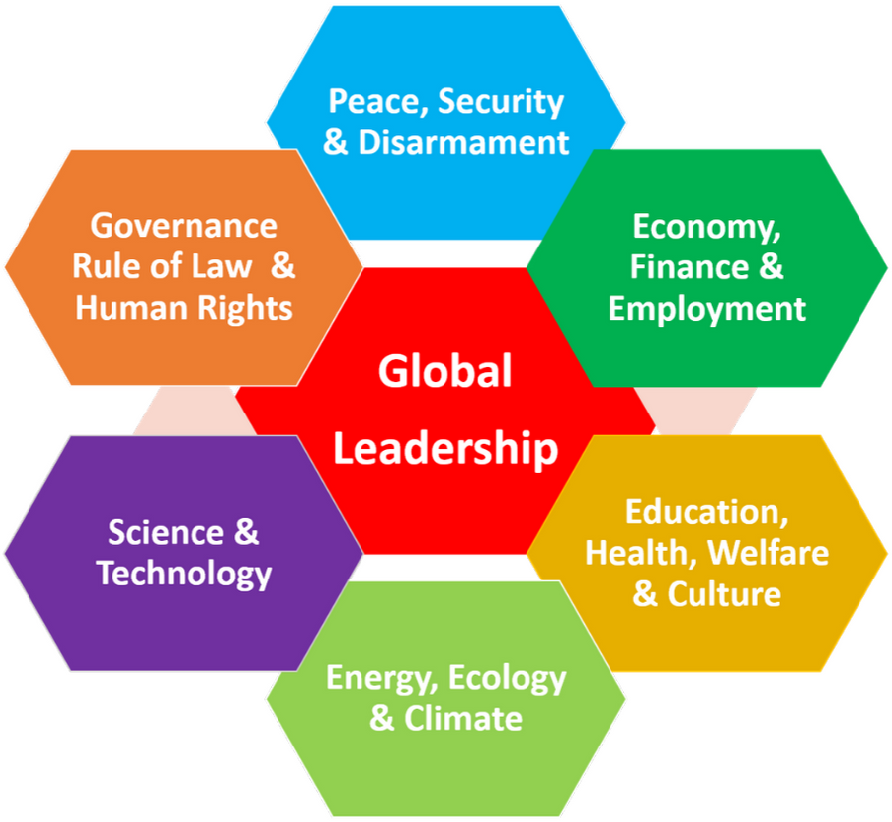 Humanity is presently facing a nexus of challenges of unparalleled scope, magnitude and complexity. COVID-19 is only the most visible and immediately impactful challenge, posing severe threats to the health, wellbeing, livelihoods and economic security of untold millions around the world. The urgency of this crisis has nearly eclipsed attention to other immanent threats to human security — global warming, war, financial instability, economic insecurity, rising inequality, revival of the arms race, the retreat from democracy, uncontrolled migration, disruptive emerging technologies, declining confidence in science and public institutions, populism, and polarization of society. The unparalleled series of asymmetric shocks they impose can only be effectively addressed by concerted, coordinated multilateral action by and on behalf of all nations in the world community and our international agencies for global governance. New ideas and strategies are urgently needed to reverse reactionary trends and direct global society toward a new paradigm in human development. The time has come to come together to create the essential global leadership needed for the 21st century. This is a Planetary Moment and a time for global leadership to generate Planetary Momentum.
Humanity is presently facing a nexus of challenges of unparalleled scope, magnitude and complexity. COVID-19 is only the most visible and immediately impactful challenge, posing severe threats to the health, wellbeing, livelihoods and economic security of untold millions around the world. The urgency of this crisis has nearly eclipsed attention to other immanent threats to human security — global warming, war, financial instability, economic insecurity, rising inequality, revival of the arms race, the retreat from democracy, uncontrolled migration, disruptive emerging technologies, declining confidence in science and public institutions, populism, and polarization of society. The unparalleled series of asymmetric shocks they impose can only be effectively addressed by concerted, coordinated multilateral action by and on behalf of all nations in the world community and our international agencies for global governance. New ideas and strategies are urgently needed to reverse reactionary trends and direct global society toward a new paradigm in human development. The time has come to come together to create the essential global leadership needed for the 21st century. This is a Planetary Moment and a time for global leadership to generate Planetary Momentum.
